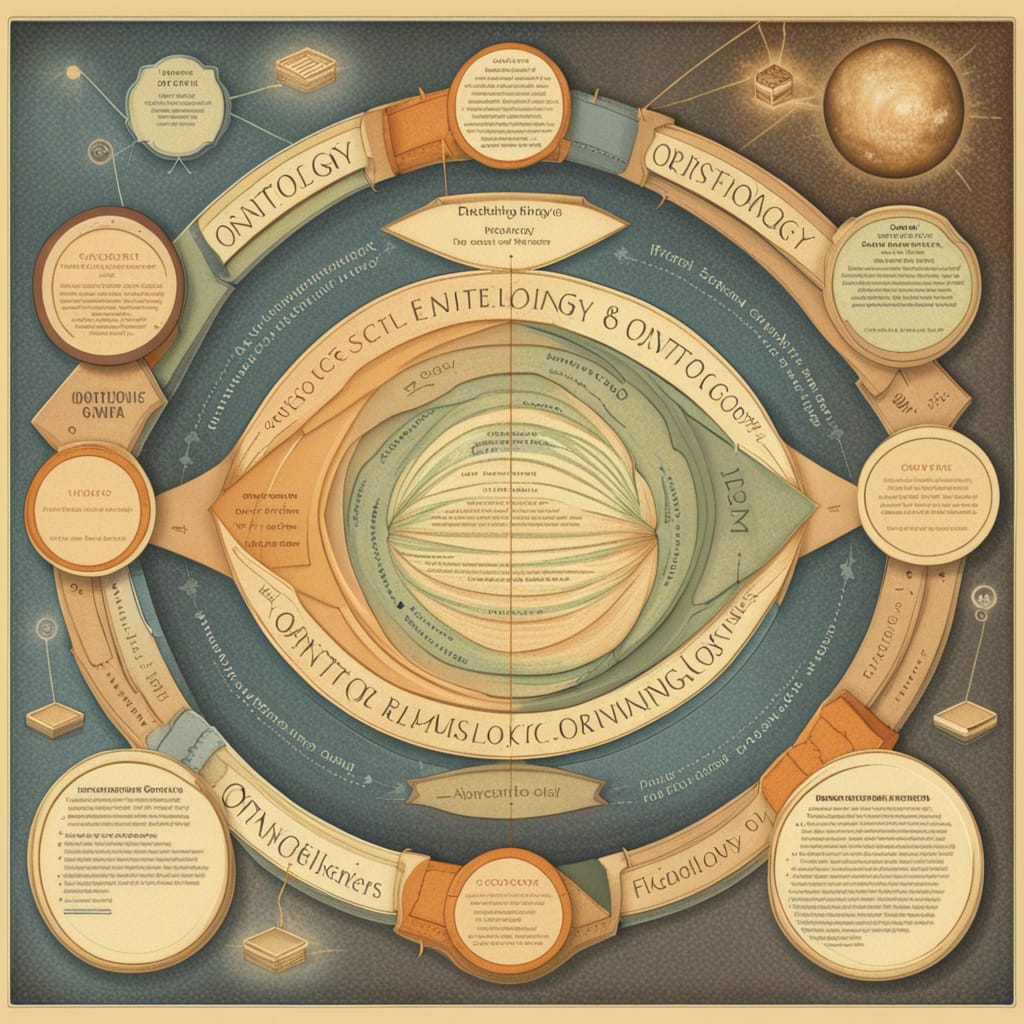
If there’s one thing that philosophy has taught us, it’s the importance of distinctions. The tree-like structure of ontology and epistemology is a perfect example. Ontology is the study of what exists, while epistemology is the study of how we know what exists. In other words, ontology answers the question “What is it?” while epistemology asks “How do we know what it is?” To put it another way: ontology is about the beings in the world, and epistemology is about our thoughts about those beings. Got all that?
🚸Introduction
In the realm of philosophy, two concepts stand at the very foundation of our understanding of reality: epistemology and ontology. While they may sound complex and abstract, delving into these two branches of philosophy can unlock profound insights into how we acquire knowledge and how we define the nature of existence itself.
Epistemology
Epistemology, derived from the Greek words “episteme” (knowledge) and “logos” (study), is concerned with the nature, origins, and limits of knowledge. It investigates questions such as: What is knowledge? How do we acquire it? What are the sources of knowledge? Epistemologists seek to understand the nature of truth, the criteria for justified beliefs, and the methods of gaining reliable knowledge.
At the heart of epistemology lies skepticism, which challenges our certainty about the external world and questions the reliability of our senses. Descartes’ famous phrase, “I think, therefore I am,” epitomizes the quest for foundational knowledge. Rationalism and empiricism, two major schools of thought, debate whether knowledge primarily arises from reason or experience.
Ontology
Ontology, derived from the Greek words “ontos” (being) and “logos” (study), is concerned with the nature of existence, reality, and being itself. Ontologists explore questions such as: What is the fundamental nature of reality? What entities exist? What are the relationships between them? It is an investigation into the very fabric of our existence.
Ontology branches into various philosophical perspectives, including materialism, idealism, dualism, and more. These perspectives explore the nature of mind and matter, the relationship between the physical and the mental, and the existence of abstract entities. Ontological debates also touch upon the concepts of time, space, causality, and free will, leading to profound insights and philosophical conundrums.
Interplay
Epistemology and ontology are intricately interconnected, shaping and influencing one another. Epistemological assumptions determine how we perceive and understand the world, while ontological assumptions provide the framework for what can be known.
The interplay between these two branches of philosophy is essential for constructing coherent worldviews.
Stability
Epistemology relies on ontology for its grounding. How we define the nature of reality influences the sources and validity of knowledge claims. For example, an idealist ontology posits that reality is fundamentally mental, thus altering the nature of knowledge acquisition.
On the other hand, empiricist epistemology emphasizes the primacy of sensory experience, grounding knowledge in observations of the physical world.
Proof
Conversely, ontology is informed by epistemological considerations. Our understanding of what can be known or justified shapes the entities we recognize and the relationships we establish between them. For instance, a materialist ontology may reject the existence of supernatural entities due to a lack of empirical evidence, while a rationalist epistemology may prioritize a priori reasoning.
Conclusion
Epistemology and ontology form the pillars upon which philosophical inquiry rests, enabling us to make sense of the world and our place in it.
While epistemology investigates the acquisition and limits of knowledge, ontology delves into the nature of existence itself. Understanding the interplay between these two branches of philosophy allows us to critically examine our beliefs, challenge our assumptions, and develop a more nuanced understanding of the complex tapestry of reality.
As we conclude our journey into the depths of epistemology and ontology, we emerge with a newfound appreciation for the complexity and interconnectedness of these philosophical domains.






One Comment
Comments are closed.